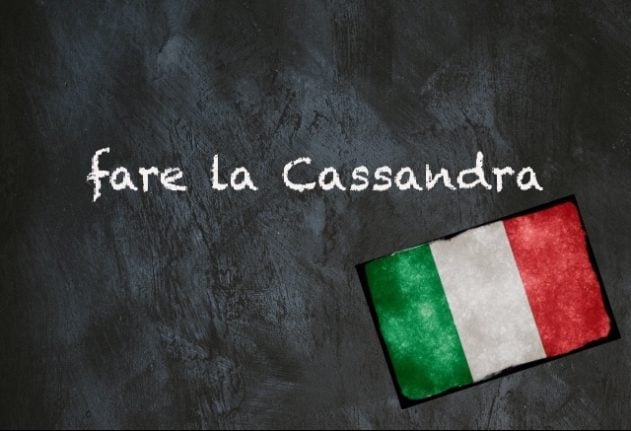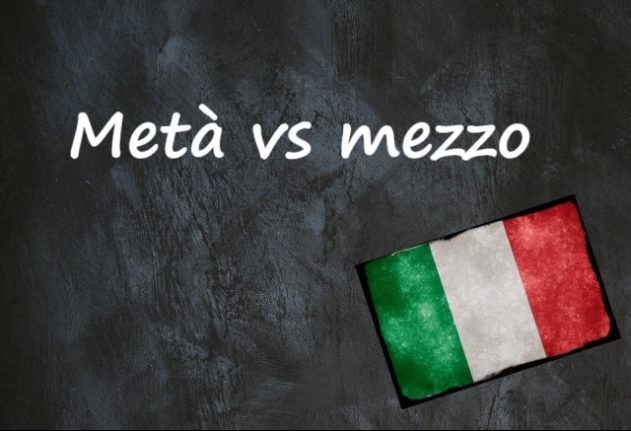You’re looking on as your neighbour climbs a ladder to do some jobs on their roof, but you notice they’re laden down with tools and objects. They’re wobbling unsteadily as they climb – and those steps don’t look overly secure anyway.
Up they go and you can already picture the flashing ambulance lights as they slip and flail all the way down to the bottom.
You want to express your concern for things going badly, as it’s just obvious to you that they will, but you don’t want to fare la Cassandra about it.
Non vorrei proprio fare la Cassandra, ma sei sicuro che la scala sia stabile?
I really don’t want to be a doom-monger, but are you sure that ladder’s stable?
Non voglio essere la Cassandra, ma questo non è di buon auspicio.
I don’t want to be a Debbie downer, but this doesn’t bode well.
So, being a Cassandra (either fare la Cassandra or essere la Cassandra works), is a rhetorical device to mean you predict or foretell disastrous and dramatic events or misfortunes without being believed. In other words, you’re an ignored prophet of (accurate) ominous happenings.
The phrase has its origins in Greek mythology – Cassandra was a beautiful young woman with the power to make prophecies, which were not believed.
She was the daughter of Priam, King of Troy and she was so captivating that even the god Apollo himself fell in love with her. To woo her, Apollo gave her the power of prophecy. He was the god of prophecy too, actually – as well as music, art and poetry.
The young Trojan princess, however, refused Apollo’s romantic advances, who, in response, took revenge by condemning her to predict terrible events without ever being believed.
‘To be a Cassandra’ therefore means to predict unpleasant situations, but for nobody to give you the time of day when you tell them that falling piece of rock is going to hit them on the head.
You can use the phrase to show you don’t want to be negative, but that you foresee problems. In this sense, it’s a bit like the English phrase, ‘rain on your parade’.
Senza voler fare la Cassandra, credo comunque che tu abbia ancora una lunga strada da fare.
I don’t want to rain on your parade, but I still think you have a very long way to go.
It’s even the namesake of a syndrome. In the field of psychology, the Cassandra syndrome is defined as the condition of those who have an overly pessimistic view of future events, whether these concern themselves or other people.
This leads to constantly predicting misfortunes for oneself or others.
Such a fatalistic view of the world can be irritating. If someone is always predicting the worst case scenario, you can tell them to stop being such a Cassandra about it.
Non fare la Cassandra.
Don’t be such a doomsayer/a Debbie downer.
So don’t be a negative Nelly, or a calamitous Cassandra, get learning this phrase and it’ll all work out just fine.
Do you have an Italian word you’d like us to feature? If so, please email us with your suggestion.



 Please whitelist us to continue reading.
Please whitelist us to continue reading.
Member comments